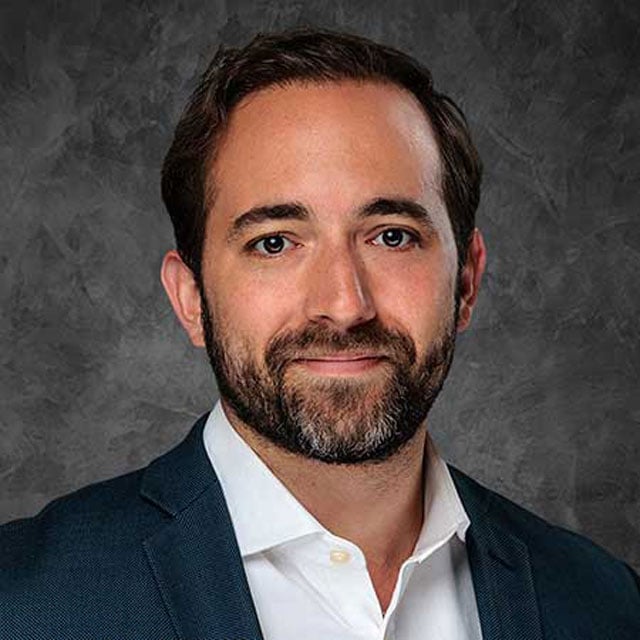Mercer's Magic Formula for Growing Assets Over 50% in 18 Months

It’s interesting, because the broader industry is evolving, but here at Mercer Advisors, we’ve been doing things this way since 1985. Mercer Advisors has been doing this fiduciary, planning-first work for a lot longer than people commonly think.
Our founder was a tax and estate attorney, so we’ve been integrating those elements into our services from Day 1. Our culture is rooted in this idea of being a “family office for your family.” We’ve been doing this for decades, and we’ve navigated various cycles while sticking to that.
If you think about what clients are actually hiring us for, it’s for help in navigating what is the highest-stakes and most complex financial system for families that exists anywhere in the developed world. While that statement can sound political, it’s just a fact that our financial system can be challenging to navigate.
What happens in that context is that clients want to know that their advisor is going to act as their trusted partner and guide.
One thing that has changed over time is the discussion about robo-advisors. If you remember, a decade or more ago, there was this big idea that robo-advisors would take over the world.
We wrote a paper back then saying, yes, technology is more important and remote delivery of wealth management services will be key — but we won’t see robots taking over people’s finances, not in this paradigm.
What trends are you seeing among high- and ultra-high-net-worth clients?
My view is that, at the core, what UHNW clients expect from their advisor and firm is not all that different from what any client expects — in the sense that they want a unification of their money and advice around their money. They want full visibility around investing, tax, estate planning and insurance.
Both markets have the appropriate expectation of having an advisor who is not a salesperson. Both groups expect, rightly so, that they will get institutional-grade investment portfolios that are delivering capabilities that are an order of magnitude more effective than doing it themselves. And, most important, they expect a true fiduciary relationship.
That said, when you get to the ultra-wealthy, the nature of the opportunities they have and the financial complexity they face does change quite a bit. I would point back to our team structure. When we serve these clients, we think about Mercer Advisors as a single collective.
We are making a multi-generation promise to those clients that will hopefully outlive any of us who work here today. And we’re truly going to bring the full strength of the institution to bear for their benefit.
We’ve now grown larger than the Harvard endowment by size, for example, which gives us scale to do things in a differentiated and powerful way that even families with hundreds of millions of dollars might struggle to do for themselves.
Can you describe the service model for the wealthiest clients?
Taking a step back, I’d say that we have focused very much on making it possible to build a true family office approach for clients with $300,000 or more, so it’s not just the ultra-wealthy we are focused on. How do you do that? Again, for us, it’s about having that lead advisor being empowered to collaborate with other professionals in a team-based approach.
Then, for a client with $10 million or more, they typically move towards working with the Ascend or Regis groups, which are specialized teams for ultra-high-net worth clients. In those cases, clients have a team with a dedicated senior tax advisor, a dedicated senior estate strategist, a dedicated investment strategist and a coordinating wealth advisor.
The meeting frequency is also higher, and the availability of specialty investment solutions and lending solutions changes with wealth. For example, if you are a qualified purchaser, your access to quality private and alternative investments through our platform is equivalent to any large institutional investor.
Another interesting thing is how we go about serving multigenerational families. Often, we find that someone who is the lead client in a family says they want us to connect their second generation with their own advisors — but do so in a way that follows a set of protocols determined by the primary relationship.
It allows us to coordinate on things like tax, legacy planning and more, while respecting the unique dynamics that might exist within a family.
What do you think about the challenge of building scale in a consolidating wealth management market?
We’re always very intentional and deliberate in terms of how we manage our firm. We feel a real sense of responsibility to steward the culture and not take any shortcuts. We’ve been quite deliberate about that in the way we have built the firm — to not pursue growth just for the sake of growth.
When we get bigger, we want to get better. We want to add more and more value for customers and the families we work with. It’s about being a fiduciary day to day, but it’s also about being a fiduciary in the way that we build and run the firm.
On a personal note, I feel great gratitude for the several generations of advisors who carried forward the fiduciary promise when it wasn’t obvious. There are many of us who are benefiting from that history now, but there are many folks in this industry who have invested their time and effort and careers to get the industry to this point.
Pictured: Daniel Gourvitch




